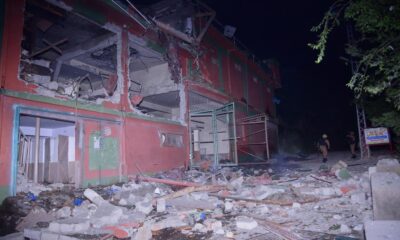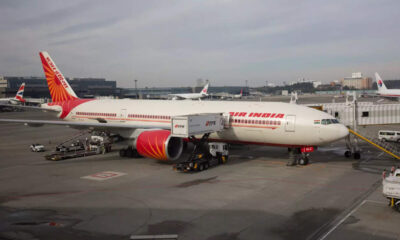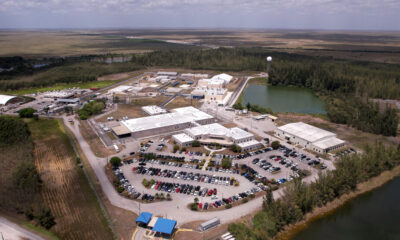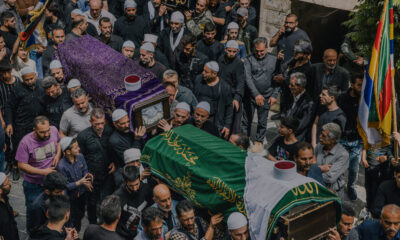Israeli air strikes targeted parts of Gaza’s largest city on July 11, as reported by Hamas, following the Israeli military’s announcement of the conclusion of its operation in an eastern district that experienced intense combat in months within Gaza City.
The escalation in fighting, bombing, and displacement occurred after Israeli Prime Minister Benjamin Netanyahu indicated at the end of June that the “intense phase” of the war was nearing its end.
Simultaneously, discussions were underway in Qatar for a potential ceasefire and the release of hostages after over nine months of conflict.
Hamas, the ruling party in Gaza, stated that Israeli forces had withdrawn from the Shujaiya district in Gaza City, leaving behind significant destruction of residential and commercial properties.
Reports on July 11 mentioned the movement of tanks and troops to other areas of Gaza City, with ongoing clashes between Israeli forces and militants resulting in explosions, artillery shelling, and gunfire. Witnesses also observed smoke rising in various parts of the city, according to AFP correspondents.
Hamas reported 45 air strikes in Gaza City and Rafah on July 11, following Mr. Netanyahu’s statement that the intense phase of the war was nearing its end.
‘Immense Destruction’
The conflict, initiated by Hamas’s attack on southern Israel on October 7, has led to the deaths of 1,195 individuals, primarily civilians, according to an AFP tally based on Israeli data. The militants have also taken hostages, with 116 individuals still held captive in Gaza, including 42 presumed dead by the military.
In response, Israel launched a military offensive resulting in at least 38,345 casualties in Gaza, mostly civilians according to Gaza’s Health Ministry figures. The latest death toll included 50 new fatalities within the previous 24 hours.
Israel’s military considered Rafah as the last stronghold of Hamas, claiming to have dismantled the militant group’s military infrastructure in Gaza’s northern region earlier in the conflict.
Mr. Netanyahu has expressed determination to eliminate Hamas, a goal that has faced skepticism from critics domestically and internationally.
On July 10, the Israeli military announced the completion of its mission in Shujaiya, leaving the area visibly devastated based on AFPTV footage. The scenes depicted immense destruction with demolished houses and businesses, as described by residents who returned to the area.
The Health Ministry reported the recovery of six bodies following the Israeli troop withdrawal from Shujaiya. Leaflets were dropped on July 10 warning residents about the continued danger in Gaza City and providing escape routes for the estimated 350,000 people residing in the region.
The United Nations criticized the latest evacuations, stating that they would exacerbate the suffering of Palestinian families who have been displaced multiple times and are facing urgent humanitarian needs.
An Israeli government spokesperson clarified that the objective was to protect civilians from harm during military operations against militants.
Hamas official Hossam Badran, in response to increased military actions, accused Israel of hoping to pressure the resistance into abandoning its legitimate demands during ceasefire negotiations.
An Israeli delegation, led by spy chief David Barnea, arrived in Qatar for ceasefire discussions, with CIA director William Burns expected to join after his talks in Cairo. Mr. Netanyahu also met with U.S. President Joe Biden’s special envoy for the Middle East, emphasizing his commitment to a proposed ceasefire plan while ensuring the preservation of Israel’s interests.
The former headquarters of the U.N. Palestinian relief agency, UNRWA, became a target of the recent military operation, with Israeli forces uncovering weapon stockpiles in the area.
March to Jerusalem
Israel’s military continued operations in Rafah, where numerous militants were reportedly killed following projectile launches toward Israel on July 11.
Meanwhile, demonstrations by anti-government protesters demanding new elections and the release of hostages intensified. Relatives of Israeli hostages embarked on a march from Tel Aviv to Jerusalem to urge government action.
Since the onset of the Gaza conflict, Israeli forces have engaged in sporadic exchanges with Hezbollah militants in Lebanon, raising concerns of a broader regional escalation.
Hezbollah leader Hassan Nasrallah stated that if the fighting in Gaza ceases, their front would also halt fire without further negotiations.








































